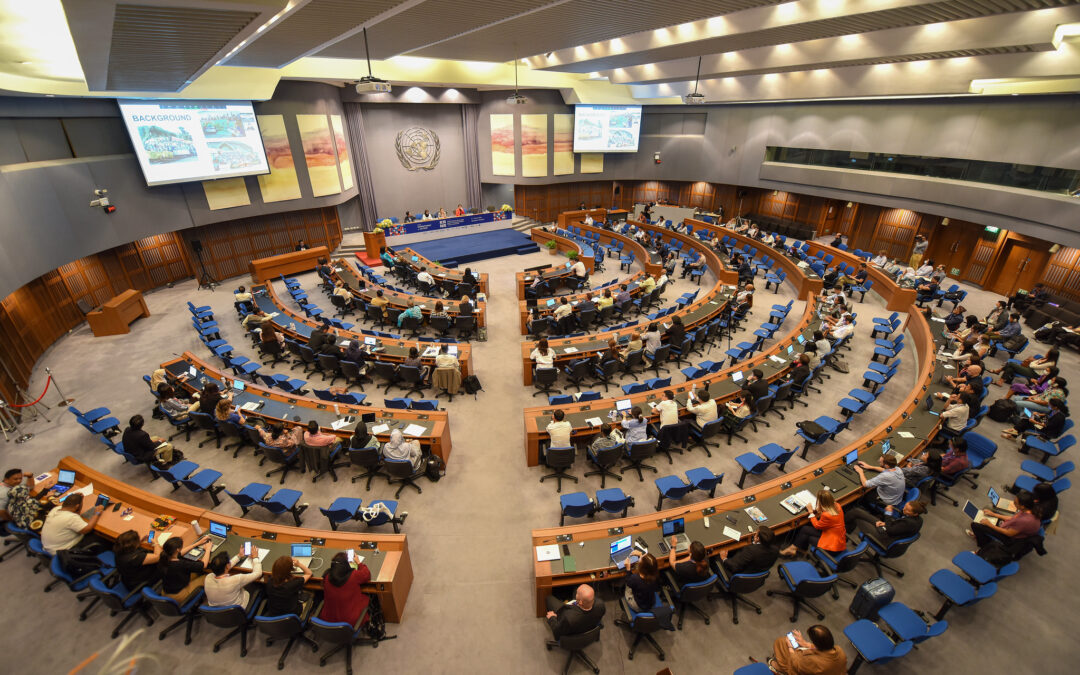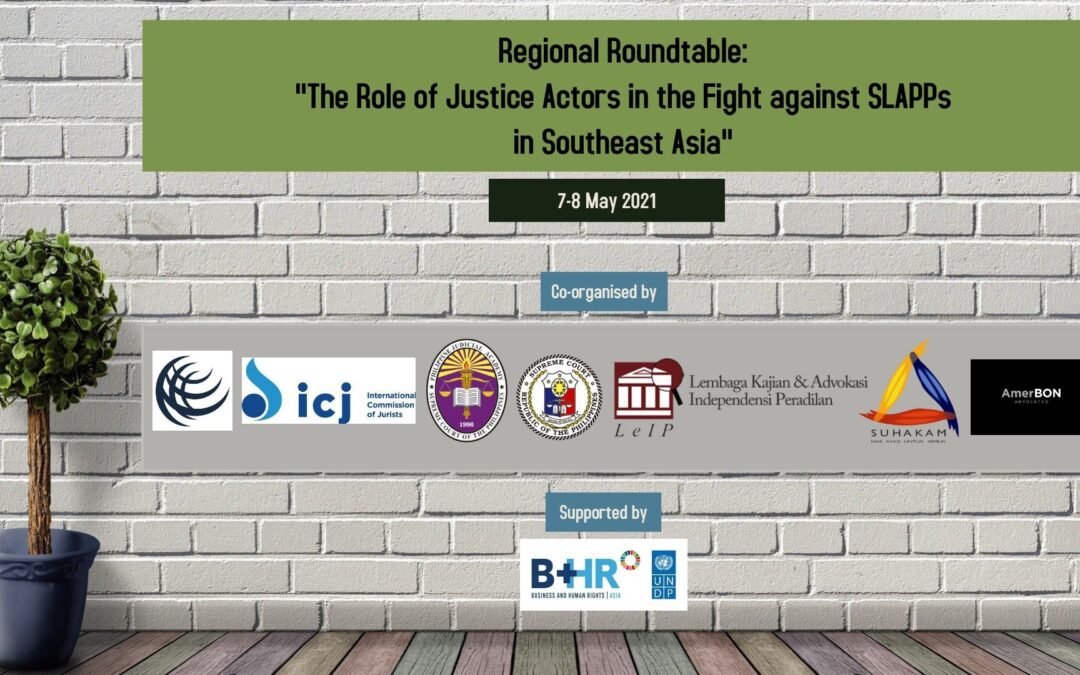
Jun 17, 2023 | Advocacy, News
“Business enterprises continue to use their clout to nullify the work of human rights and public interest advocates through abusive lawsuits (SLAPPs) and far more needs to be done by governments to protect against this practice,” said the panelists during the forum titled ‘Addressing SLAPPs Against Human Rights Defenders in South-East Asia: Challenges and Lessons Learned’ on 9 June 2023.

May 9, 2021 | News
Southeast Asian governments must diminish the misuse of lawsuits to harass and silence civil society, so-called SLAPP suites, said more than 70 international experts, judges, public prosecutors, lawyers, members of civil society organizations, academics, and members of executive and State institutions from Indonesia, Malaysia, the Philippines, and Thailand at a discussion convened by the ICJ and partners on 7 and 8 May.
The participants at the regional dialogue on “The Role of Administration of Judicial Authorities and Legislators in the Fight against Strategic Lawsuits Against Public Participation (SLAPPs) in Southeast Asia” addressed the proliferation of SLAPP suits, which SLAPP suits are undertaken with the principal objective of curtailing or deterring public criticism or opposition to certain activities by the entity initiating the legal action. SLAPP lawsuits typically have a “chilling effect” on the exercise of freedom of expression and other human rights and fundamental freedoms, including freedom of opinion and expression (article 19 of the International Covenant on Civil and Political Rights); freedom of peaceful assembly (article 21); and the right to take part in the conduct of public affairs (article 25).
Irene Khan, Special Rapporteur on the promotion and protection of freedom of opinion and expression, stated that it is necessary to bring exiting laws in compliance with international law and standards, including with the principles of legality, proportionate, necessity, legitimate purpose, and non-discrimination, and called for defamation laws to be decriminalized.
Prof. Surya Deva, Vice-Chairperson, the Working Group on the issue of human rights and transnational corporations and other business enterprises, referred to several anti-SLAPP provisions that, in his view, are inadequate, including section 161/1 and 165/2 of Thailand’s Criminal Procedure Code. He pointed out that while the legal reform needed, States also need to train relevant stakeholders who will make use of these. Internal or soft guidance can also be a helpful guideline on how to exercise discretion, and more resources should be allocated to raise awareness.
Several participants, while noting their duties to protect rights to access to justice and the power imbalance between the parties in SLAPP lawsuits, called for a robust legal frameworks and policies that prevent the filing SLAPPs in the first place and allow relevant authorities to identify, call out and dismiss them as soon as they are filed.
In the jurisdictions where such mechanisms exist, participants highlighted the need to address certain gaps to allow authorities to promptly and effectively exercise their power, and the importance of guidelines that can guide the relevant authorities on how to handle and proceed with SLAPPs in a coordinated effort to raise awareness among justice sector actors on this topic.
In the absence of a specific Anti-SLAPP legislation, participants also shared their experience using existing tools in their domestic laws as a basis in combating SLAPPs, including several provisions of the constitutions, other early dismissal mechanism provided in procedural laws, provisions under international laws, and encouraged their peers to think out of the box.
Reforming individual causes of action that commonly form the basis of SLAPPs, such as defamation, to ensure their compliance with international law and standards were also discussed by participants as another approach that the governments should consider, in combination with other measures.
Remedies for persons negatively affected by SLAPP lawsuits were encouraged.
The Workshop was conducted in collaboration with Business & Human Rights Resource Centre (BHRRC); Philippine Judicial Academy; the Supreme Court of the Republic of the Philippines; Lembaga Kajian dan Advokasi Independensi Peradilan (Indonesian Institute for Independent Judiciary or LeiP); Human Rights Commission of Malaysia (SUHAKAM) and AmerBON Advocates.
The speakers at the workshop were: representatives of all partner organizations; Nikhil Dutta, Global Programs Legal Advisor of the International Center for Not-for-Profit Law (ICNL); Joel Hernández García, Inter-American Commission on Human Rights’ Rapporteur on the Rights of Human Rights Defenders and Justice Operators; Irene Khan, Special Rapporteur on the promotion and protection of freedom of opinion and expression; and Prof. Surya Deva, Vice-Chairperson, the Working Group on the issue of human rights and transnational corporations and other business enterprises.






